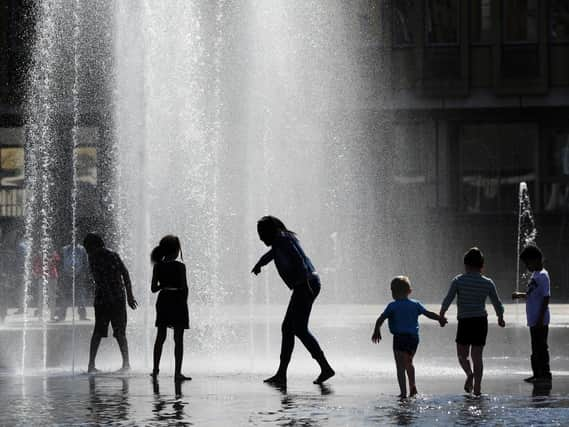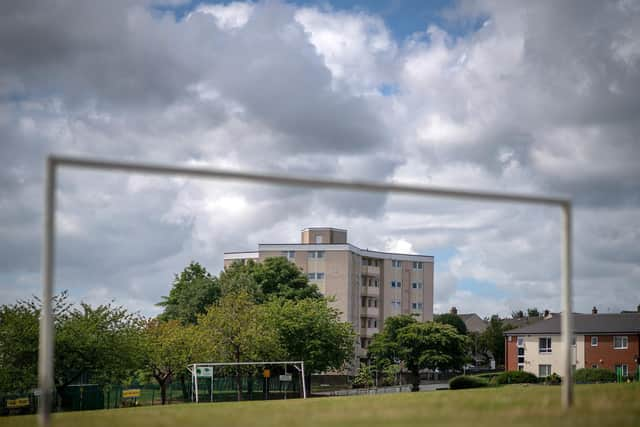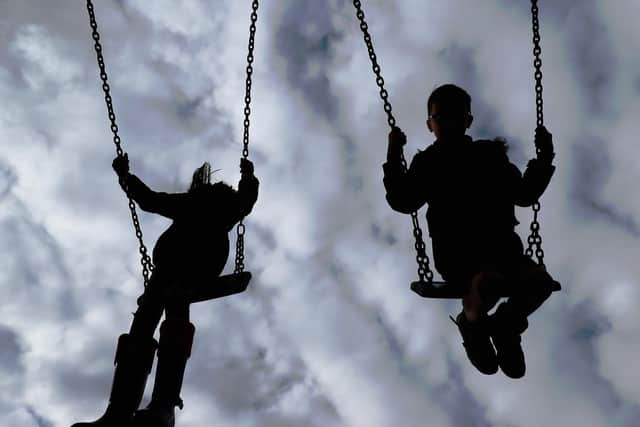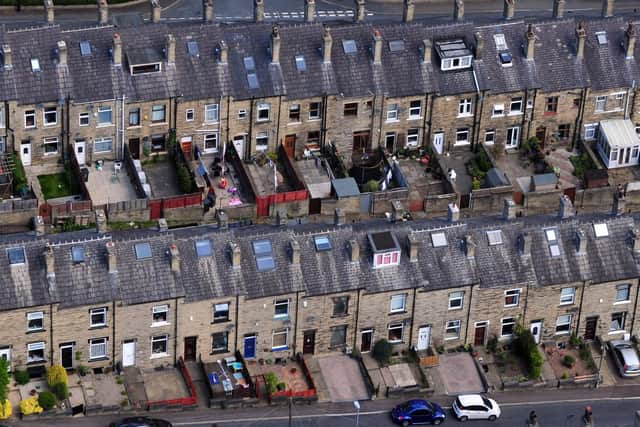'Shameful' child poverty figures reveal startling inequality between North and South with Bradford and Hull among cities to see biggest rises


Data released by End Child Poverty showed that more than half of children in some Parliamentary constituencies were living in poverty before the Covid-19 pandemic, after housing costs are factored in.
Levels of child poverty have risen in the North more than anywhere else in the past five years, with the three remaining areas in the list of 20 all in the Midlands, according to the research which was carried out by Loughborough University.
Advertisement
Hide AdAdvertisement
Hide AdIn Yorkshire & the Humber, the rate of child poverty after housing costs increased from 28 to 32 per cent in four years, with the steepest rises seen in Bradford and Hull.


It comes as MP Emma Lewell-Buck spoke in the House of Commons yesterday (Tuesday) saying the coronavirus crisis had “exacerbated” child hunger with 2 million needing food donations in the first five weeks of lockdown.
The Labour MP for South Shields said: “We are faced with a generation of children for whom the hopelessness of austerity and poverty are becoming the norm.”
In Bradford West, child poverty levels rose from 34.9 to 47.8 per cent between 2014/15 and 2018/19 – a hike of nearly 13 per cent. The neighbouring Bradford East constituency also saw a large increase of 10.5 per cent, with almost 47 per cent of children currently living in poverty after housing costs.
Advertisement
Hide AdAdvertisement
Hide AdThere were also increases of 6.7 percentage points in Hull, 4.8 percentage points in Kirklees and 4 percentage points in Leeds.


Child poverty rates in Yorkshire were in line with the national average of around 28 per cent in 2015, but the average has now risen to 30 per cent, with Yorkshire's rate at two percentage points higher.
Other constituencies to see the biggest rises were Middlesbrough, Newcastle Central and Birmingham's Hodge Hill, Ladywood and Yardley constituencies.
Due to the higher costs of rent and living in London, a list of areas which saw rises in child poverty compared before and after housing costs were virtually all constituencies in the capital.
Advertisement
Hide AdAdvertisement
Hide AdEnd Child Poverty's Chair Anna Feuchtwang described the figures as "shameful" and said the Government faced a huge challenge if it was serious about "levelling up" disadvantaged parts of the country.


She said: "This new data reveals the true extent of the hardship experienced by families on low incomes – the overwhelming majority of which were working households before the pandemic.
"The children affected are on a cliff edge, and the pandemic will only sweep them further into danger.
"The Prime Minister must urgently admit to the true extent of child poverty in our country rather than resorting to his own inaccurate statistics. An ambitious plan to put this shameful situation right would be transformational for millions of children."
Advertisement
Hide AdAdvertisement
Hide AdBradford Council leader Susan Hinchcliffe described the figures as “nothing short of scandalous”.
She said: "We’re a big bold city in the heart of the North, with a young population who want to do well in life.
“The North cannot be successful without Bradford being successful so it’s in everyone’s interest for those young people in Bradford to have just as many opportunities to thrive and flourish as any other child in the UK.”
Ms Hinchliffe added: "West Yorkshire has an economic recovery plan to create green jobs, better access to skills and improved connectivity. We’ve asked Government for £1.4 billion to deliver it so children in places like the Bradford district can have the chance of a better future. We owe it to them given what they’ve gone through.”
Advertisement
Hide AdAdvertisement
Hide AdIn a briefing from Downing Street on Monday evening, Chancellor Rishi Sunak said he was working to make a “more generous” welfare system as the country heads into a second wave of Covid-19 infections.
A spokesman for the Department for Work and Pensions said: “There are 100,000 fewer children living in absolute poverty than in 2009/10 and making sure every child gets the best start in life is central to our efforts to level up opportunities across the country.
“We have already taken significant steps to do this by raising the living wage, ending the benefit freeze and injecting more than £9.3 billion into the welfare system to help those in most need.”
Support The Yorkshire Post and become a subscriber today.
Your subscription will help us to continue to bring quality news to the people of Yorkshire. In return, you'll see fewer ads on site, get free access to our app and receive exclusive members-only offers.
Advertisement
Hide AdAdvertisement
Hide AdSo, please - if you can - pay for our work. Just £5 per month is the starting point. If you think that which we are trying to achieve is worth more, you can pay us what you think we are worth. By doing so, you will be investing in something that is becoming increasingly rare. Independent journalism that cares less about right and left and more about right and wrong. Journalism you can trust.
Thank you
James Mitchinson (Editor)
Comment Guidelines
National World encourages reader discussion on our stories. User feedback, insights and back-and-forth exchanges add a rich layer of context to reporting. Please review our Community Guidelines before commenting.